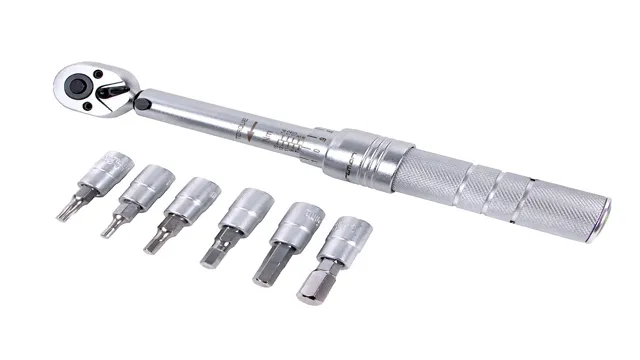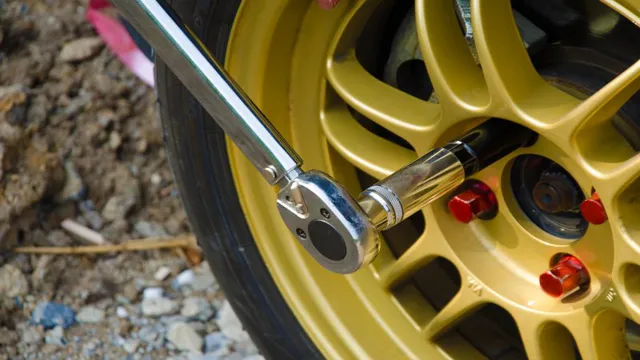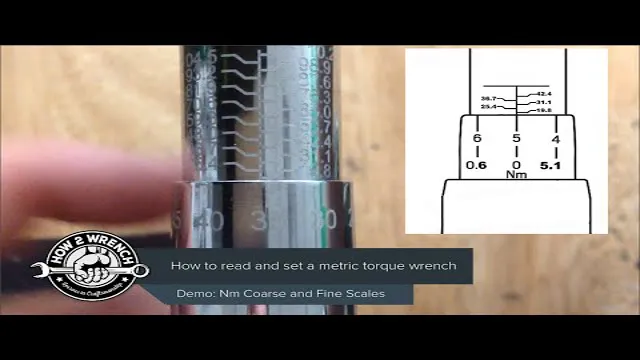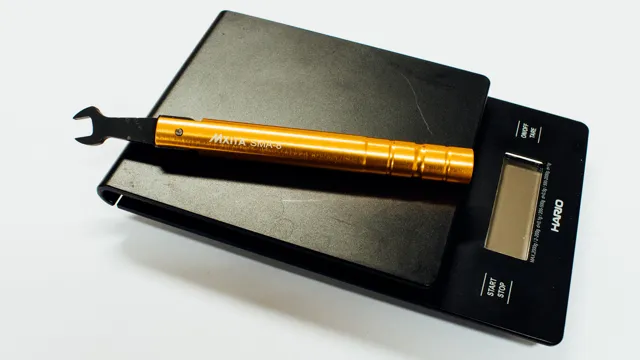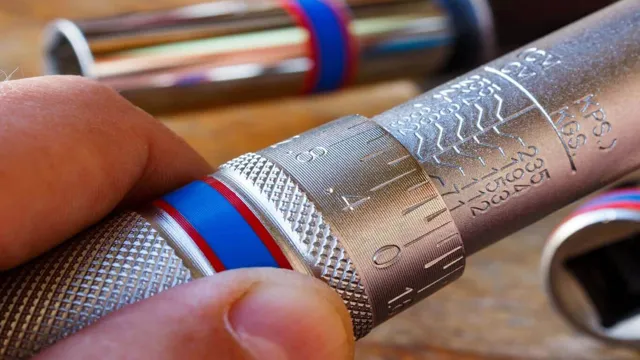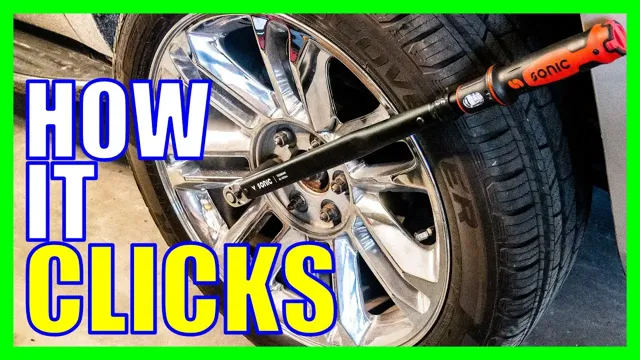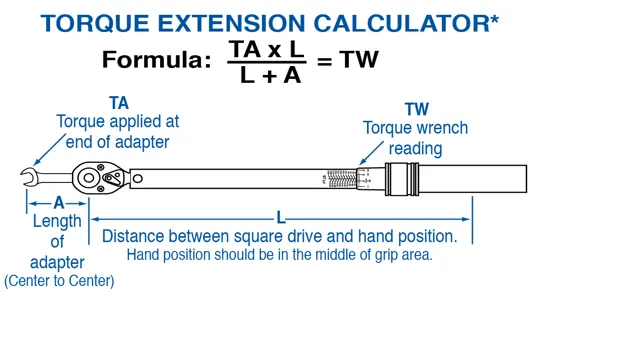Why Do I Need a Torque Wrench? Benefits and Usage Guide
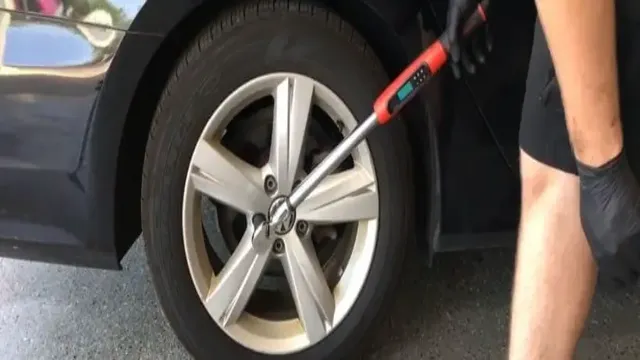
Have you ever tightened a bolt or nut without knowing the exact tightness needed? Or have you relied on the “feel” of the wrench, only to later find out that you under- or over-tightened it? These situations can be frustrating and, more importantly, can lead to equipment failure or safety hazards. This is where a torque wrench comes in. A torque wrench is a specialized tool that measures and sets the amount of torque applied to a fastener, ensuring that it is tightened to the correct specifications.
Think of it like a baking recipe that calls for precise measurements of ingredients – if you don’t follow the recipe, the final product could turn out subpar. Similarly, using a torque wrench ensures that you achieve the desired outcome – a securely tightened fastener that won’t come loose or fail. In this blog post, we will dive deeper into why using a torque wrench is important and the benefits it provides.
What is a Torque Wrench?
If you ever plan on doing any type of mechanical work, whether it be on your car, bike, or anything else, you may have heard the phrase “torque wrench.” A torque wrench is a tool used to measure the amount of force being applied to a bolt or nut. This is important because over-tightening or under-tightening can have serious consequences, such as stripped threads, broken parts, or even catastrophic failures.
But why do you need a torque wrench? Well, simply put, it ensures that bolts and nuts are tightened to the correct specification. This is especially important in critical areas like engine components, suspension, and brakes. Additionally, torque wrenches are often required for specific jobs listed in a repair manual, so having one on hand can save time and prevent mistakes.
Overall, if you plan on doing any type of mechanical work, investing in a torque wrench is a smart decision to ensure safety and precision.
Definition and Function
A torque wrench is a specialized tool that is used to apply a specific amount of force, or torque, to a bolt or nut. It allows mechanics to tighten fasteners to a precise level of tension, which is essential for maintaining the safety and integrity of machinery and equipment. The torque wrench has a calibrated scale that indicates the amount of torque being applied, and it produces an audible “click” when the desired level of torque is reached.
This tool is essential in many industries, including automotive, aviation, and heavy machinery, among others. Using a torque wrench ensures that bolts and nuts are tight enough to prevent them from coming loose, but not so tight that they break or cause damage to the equipment. Proper use of a torque wrench is crucial for ensuring the safety and reliability of machinery and equipment, making it a must-have tool for any serious mechanic.
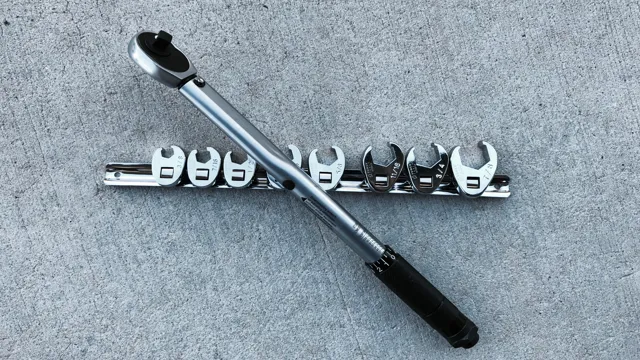
Types of Torque Wrenches
A torque wrench is a tool used to apply a specific amount of torque to a fastener such as a bolt or nut. This is important because many instances arise where bolts or nuts may become loose or break due to either over-tightening or not being tightened enough. There are different types of torque wrenches, each designed for specific applications.
A beam torque wrench is the most common type and uses a simple lever system to measure torque. Dial torque wrenches feature a gauge that displays the torque applied while a click torque wrench makes a clicking sound once a pre-set torque is reached. Digital torque wrenches give real-time torque measurements on a digital display.
No matter which torque wrench type you use, it is essential to follow the manufacturer’s specifications and instructions to ensure accurate and safe usage.
Importance of Using a Torque Wrench
As a mechanic, DIY enthusiast or hobbyist, you may be asking yourself, “why do I need a torque wrench?” A torque wrench is a vital tool in any workshop as it helps ensure that bolts and nuts are tightened to the correct specifications and standards. Using a torque wrench guarantees that bolts are tightened according to the manufacturer’s recommended torque, reducing the risk of over-tightening or under-tightening. Over-tightening can result in damaged threads or snapped bolts, while under-tightening can cause the joint to loosen, resulting in potential mechanical failure.
Additionally, using a torque wrench provides consistent torque to each bolt, ensuring that they are all tightened to the same degree and delivering consistent performance. So, investing in a torque wrench rather than relying on guesswork or other alternatives can save you time, money, and headache in the long run.
Accuracy and Precision
When it comes to accuracy and precision in torque application, using a torque wrench is of utmost importance. A torque wrench ensures that the correct amount of force or torque is applied to a fastener, preventing under or over tightening, which can lead to failure or damage. Using a torque wrench also ensures consistency in the amount of force applied, which is crucial in industries where product quality and safety are paramount.
In addition, a torque wrench can help prevent operator fatigue, as it eliminates the need for guesswork and manual effort, leading to improved efficiency and productivity. So, if you want to ensure the accuracy and safety of your work, it’s wise to use a torque wrench.
Avoiding Over-tightening or Under-tightening
When it comes to working on a project, getting the right amount of torque is crucial. Over-tightening can cause bolts to snap or weaken, while under-tightening could result in components loosening over time. That’s where a torque wrench comes in handy.
It ensures that the correct amount of force is being applied, preventing damage to your equipment and ensuring it remains secure and stable. It might seem like an additional expense, but investing in a torque wrench will prevent any costly repairs down the road. Think of it as a bit like using a recipe when cooking – just like adding too much or too little of a particular ingredient can affect the final dish, over-tightening or under-tightening can affect your finished project.
So, by using a torque wrench, you can be sure that everything is tightened to the recommended specification and in the right way. Trust me; your equipment will thank you for it.
Safety
Using a torque wrench is incredibly important in terms of safety. It ensures that nuts and bolts are tightened to the correct torque specification, preventing them from coming loose or failing under stress. If a bolt is not tightened to the correct torque, it can break under the load, leading to a catastrophic failure.
This can be particularly dangerous in applications where there is a lot of stress on the bolts, such as in automotive or industrial settings. A torque wrench allows you to apply the exact amount of force needed to ensure that the bolt is tight enough without over-tightening it, which can also cause problems. So, if you’re working on anything that requires bolts to be tightened, be sure to use a torque wrench to ensure your safety and the safety of those around you.
Applications of Torque Wrenches
Are you wondering why you need a torque wrench? Well, a torque wrench is a versatile tool that is used to tighten bolts and nuts with precision. They come in different styles and sizes, making them useful for various applications. For instance, if you want to work on your car or motorcycle, a torque wrench can help you achieve the exact torque specifications for your vehicle.
This is especially important for critical parts such as the engine or suspension. In the construction industry, torque wrenches are also important in ensuring safety and durability of structures. With a torque wrench, you can tighten bolts on nuts on your scaffolding or steel beams with accuracy, reducing the risk of accidents or structural failure.
In summary, if you want to achieve consistent, reliable and accurate results when tightening bolts and nuts, then investing in a torque wrench is highly recommended.
Automotive Maintenance and Repair
One important tool in automotive maintenance and repair is the torque wrench. This specialized wrench is used to tighten bolts and nuts to a precise level of torque, ensuring that they are secure and will not come loose while driving. Torque wrenches come in different types, including beam, click, and digital torque wrenches.
They are particularly useful in applications where a certain level of pressure is needed, such as when changing a tire or adjusting a suspension system. By using a torque wrench, mechanics can avoid overtightening which can lead to damage to the part or undertightening which could result in a dangerous situation while driving. So if you’re working on your car, make sure to have a torque wrench handy to ensure the safety and longevity of your vehicle.
Industrial and Manufacturing Settings
applications of torque wrenches. When it comes to Industrial and Manufacturing Settings, torque wrenches can come in handy for a variety of applications. One of the most common uses of these tools is for tightening bolts and screws to a specific level of torque.
In industries such as automotive and construction, it is crucial to ensure that bolts and screws are tightened to the correct torque specification to avoid accidents, malfunctions, and equipment failure. Torque wrenches can also be used for preventative maintenance purposes, ensuring that fasteners remain tight and secure over time. In addition to tightening bolts and screws, torque wrenches can also be used to measure the breaking strength of a fastener or the amount of torque required to loosen a stubborn bolt.
These functions are critical in ensuring that machinery and equipment operate safely and efficiently, reducing the likelihood of accidents or costly downtime. Overall, the applications of torque wrenches in Industrial and manufacturing settings are diverse, making them essential tools for professionals in these industries.
Choosing the Right Torque Wrench for Your Needs
If you want to make sure that your bolts are tightened to the correct specifications, then you need a torque wrench. It’s a critical tool that measures the amount of force used to tighten a bolt, ensuring that it’s not under or over-tightened. Selecting the right torque wrench for your needs will depend on the type of job you’re doing and the amount of torque required.
If you’re working on a small job, a beam style torque wrench may be just what you need. But for more significant jobs, a digital or dial torque wrench might be the best choice. By using the appropriate torque wrench for your project, you can ensure that your bolts are tightened correctly, reducing the risk of equipment failure and safety hazards.
So, it’s essential to have a torque wrench in your toolbox if you’re a professional or DIY mechanic. Don’t overlook the importance of this indispensable tool, as it can make a significant difference in your work quality.
Conclusion
In the world of DIY mechanics and automotive enthusiasts, a torque wrench is like a secret weapon that allows you to tighten bolts and nuts with precision and consistency. It ensures that your vehicle’s components are securely fastened, reducing the risk of accidents and malfunctions. Without a torque wrench, you’re like a chef without a measuring cup; you might get lucky, but you’ll never know for sure.
So, if you want to take your maintenance and repair projects to the next level, invest in a torque wrench and join the elite ranks of torque-savvy gearheads. Your ride (and your knuckles) will thank you.”
FAQs
What is a torque wrench used for?
A torque wrench is used to apply a specific amount of force, or torque, to a bolt or nut to ensure it is tightened to the correct specifications.
What happens if I don’t use a torque wrench?
If you don’t use a torque wrench, you run the risk of over-tightening or under-tightening bolts or nuts, which can cause damage to your vehicle or machinery.
How do I choose the right torque wrench for my needs?
You should choose a torque wrench based on the types of bolts or nuts you will be tightening, the amount of torque required, and the level of precision you need.
Can I use a regular wrench instead of a torque wrench?
While you can use a regular wrench to tighten bolts or nuts, you won’t have the same level of precision and control that a torque wrench provides.
How often do I need to calibrate my torque wrench?
It is recommended that you calibrate your torque wrench at least once a year, or more frequently if you use it frequently or in demanding applications.
Can a torque wrench be used for loosening bolts as well?
While a torque wrench is primarily designed for tightening bolts or nuts, some models can also be used for loosening them.
What are some common mistakes to avoid when using a torque wrench?
Some common mistakes include not using the right settings, using the wrong type of torque wrench, not properly cleaning and maintaining the wrench, and not allowing it to cool down before recalibrating it.

